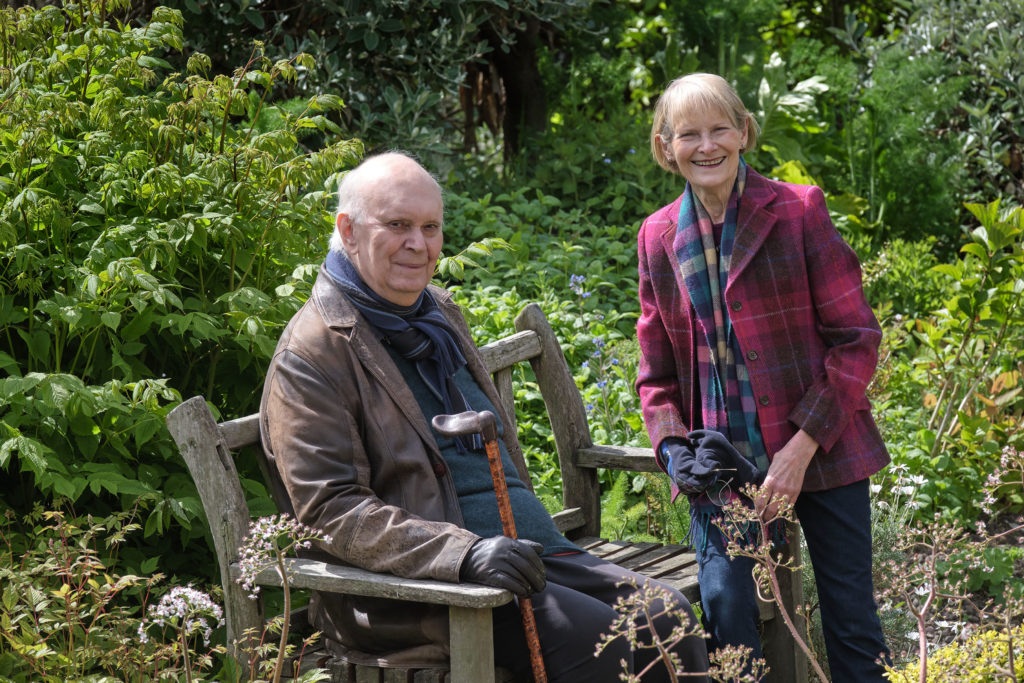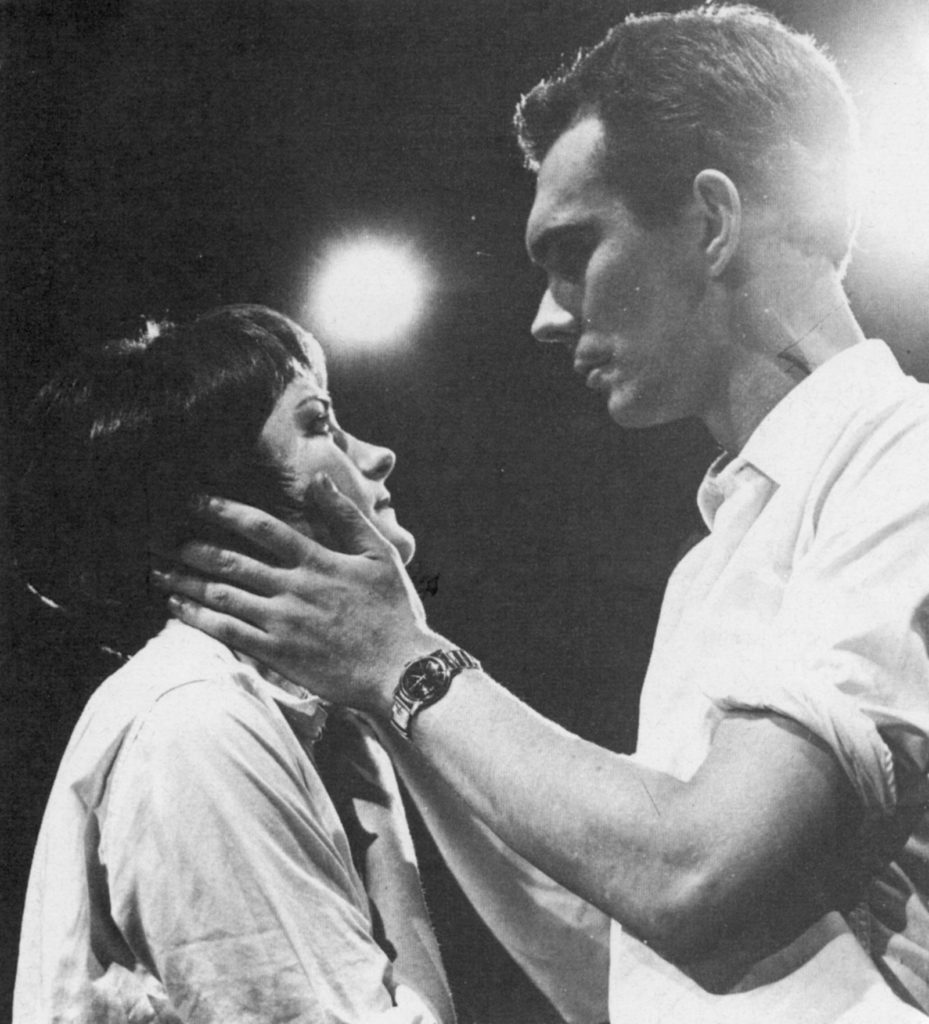
Review: Alan Ayckbourn’s Anno Domino, Stephen Joseph Theatre, Scarborough, online at sjt.uk.com until 12 noon on June 25.
HERE is a sentence your reviewer never thought he would write. 81-year-old Alan Ayckbourn is playing an 18 year old in his new audio play.
Such is the impact of life in lockdown limbo, when the Corona crisis put paid to this summer’s Stephen Joseph Theatre premiere of the director emeritus’s 83rd play, Truth Will Out.
As chance would have it, that now mothballed play portends the impact of another type of virus, “a virulent computer virus that brings the country to a standstill, in a doomsday scenario piece, perhaps not too cheering in these darker days,” as Ayckbourn reflected.
“Still, I nearly predicted it correctly – I just got the wrong virus,” he said. Ayckbourn and SJT artistic director Paul Robinson promptly hatched a plan for an alternative AA premiere, one that could be recorded at home and aired exclusively on the Scarborough theatre’s website for free.
Former radio producer Ayckbourn duly unlocked a shelved piece of writing from its own lockdown for a new lease of life as the equivalent of a radio drama that marks the first time he has written, directed and performed in one of his plays. Not to mention parade his foley artist skills for sound effects, Anno Domino rose-pruning secateurs et al.

Ayckbourn last appeared on a professional cast list in the 1964 Rotherham Civic Theatre programme for Two For The Seesaw. Sharing the stage in William Gibson’s American two-hander was Heather Stoney. “We were both totally unsuitable,” he recalled of taking on roles broken in by Henry Fonda and Anne Bancroft.
Still in his twenties, Ayckbourn played a middle-aged Nebraskan businessman; Stoney, a young Jewish dancer from the Bronx. Fifty-six years since that exit stage left, Ayckbourn now plays four characters ranging in age from 18 to mid-70s, and so too does Stoney, his wife.
Billed by Ayckbourn as “altogether lighter and more optimistic” than Truth Will Out but still with “dark corners”, and introduced on the audio recording by Robinson as “huge fun”, Anno Domino charts the break-up of a long-established marriage and the domino effect that has on family and friends.
“The inspiration came from the idea that all relationships ultimately, however resilient they appear to be, are built on sand!” says Ayckbourn, from the land of sand, Scarborough. “And it only takes one couple to break up abruptly to take us all by surprise, then all of a sudden everyone is questioning their own unshakeable relationship.”
He divides Anno Domino into two acts, the 56-minute Preparations and 48-minute Repercussions. Those Preparations are for successful West Sussex architect Sam and reasonably successful lawyer Milly Martin’s silver wedding anniversary party, where we learn they will be making a big revelation.

At the hotel party will be Sam’s parents, gruff retired criminal lawyer Ben, set in his wary ways, prone to forgetting to put on his trousers these days, “staggering on to the finishing line” with his brusque wife Ella, the play’s “darkest corner”.
There too will be Ben and Ella’s daughter Martha, a nursery-school teacher blighted by phobias and a troubled past, now six weeks into her relationship with garage mechanic Craig, a dour, kind-hearted Yorkshireman from Heckmondwike, after depressing “waste of space” poet Sefton left her.
Martha’s taciturn teen son Raymond, or Raz as he insists on being called, will eventually turn up too to, phone in hand, cheeky eye on young waitress Cinny.
The big revelation – the break-up announcement, brought on by boredom with each other – triggers the Repercussions of Act 2, where the dark corners are ultimately turned..
The best scenes, in interchanges with advice-seeking, out-of-his-depth Craig and later Martha, centre on the domineering, blinkered Ella, Ayckbourn once more writing so brilliantly for his female characters, recalling Woman In Mind. “Because I know men,” says Ella, who has the dismissive manner of a Lady Bracknell, when in fact she does not know men at all.

Ayckbourn, in that playing-things-down way of his, described making the play with Stoney as “just mucking about in our sitting room”, but it is an utter joy to hear them performing and, more to the point, performing together, with their natural chemistry, moving from voice to voice, the recording given a final mix of pleasing clarity by Paul Steer. There is pleasure too in visualising the characters from those voices.
Ayckbourn’s tone may be “lighter”, from an S&M/M&S in-joke with the listener to the pronunciation of fuchsia, but the barb is still there too with digs at cynical, untrustworthy, ruthless, amoral lawyers and an authorial comment on the negative perception of “light on their feet” people in the arts. Yet again, he has found more to say about love too.
“Ah well, life goes on, I suppose, life goes on, doesn’t it,” says Ben, at the play’s close. It does indeed, and there may yet be life anew for Truth Will Out.
“I do hope it won’t get lost or forgotten,” said Ayckbourn in last week’s interview. “The SJT have agreed that this was merely a postponement. Shame to lose it as it’s a lot of fun. Watch this space, as they say.”
In the meantime, tune in to Anno Domino, an Ayckbourn rose in full bloom but with very prickly thorns too.
Charles Hutchinson
